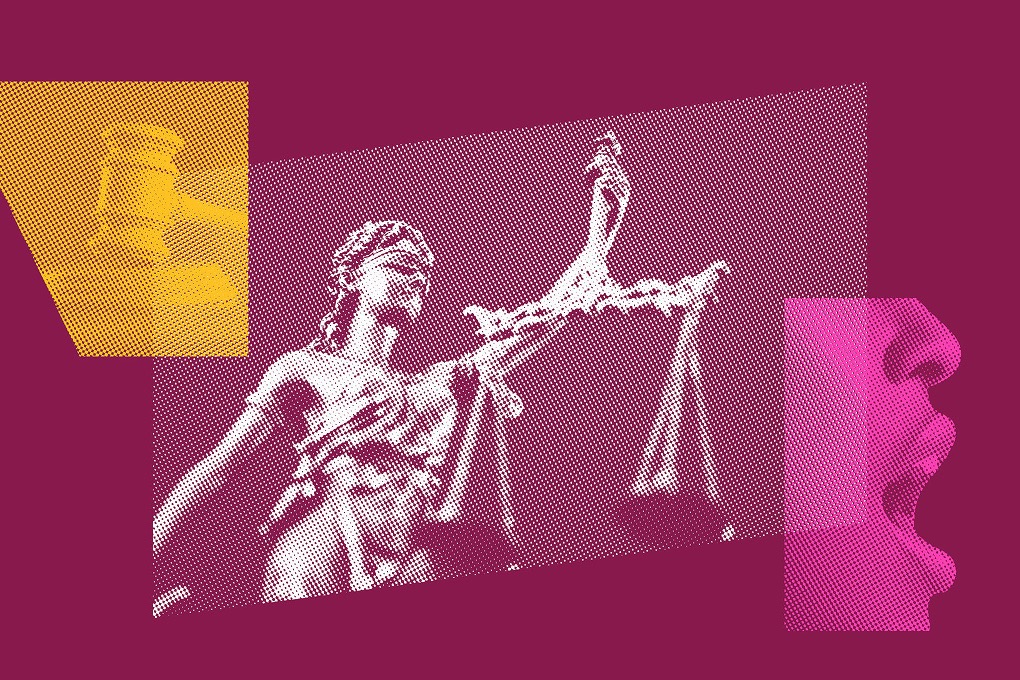U.S. Supreme Court Declares Core Section of the "Defense of Marriage Act" Unconstitutional
Ruling in Historic Windsor Case Establishes Equality for Married Gay Couples Under Federal Law
June 26, 2013
FOR IMMEDIATE RELEASE
CONTACT: 212-549-2666, media@aclu.org
NEW YORK – The U.S. Supreme Court today ruled that section three of the so-called “Defense of Marriage Act" is unconstitutional and that the federal government cannot discriminate against married lesbian and gay couples for the purposes of determining federal benefits and protections. Today's ruling is a historic victory for gay and lesbian Americans and a tremendous step forward for the cause of equality.
The court's ruling said: "The history of DOMA's enactment and its own text demonstrate that interference with the equal dignity of same-sex marriages, a dignity conferred by the States in the exercise of their sovereign power, was more than an incidental effect of the federal statute. It was its essence."
The justices ruled in favor of Edith "Edie" Windsor, who sued the federal government for failing to recognize her marriage to her partner Thea Spyer after Spyer's death. Windsor and Spyer met in the early 1960s. Spyer was diagnosed with multiple sclerosis in 1977, and Windsor helped her through her long battle with the disease, which eventually left Spyer paralyzed. Windsor and Spyer, who were a couple for 44 years, were married in 2007. When Spyer died in 2009, she left all of her property to Windsor, including the apartment that they shared. But because DOMA prevented the federal government from recognizing the marriages of gay people, Windsor was forced to pay $363,000 in estate taxes that she would not have owed if she had been married to a man. Windsor's attorneys argued that DOMA denied her, and other gay and lesbian married couples, the equal protection of the law guaranteed by the U.S. Constitution.
"DOMA violated the fundamentally American principles of fairness and equality," said Windsor. "Because of today's Supreme Court ruling, every child born today will be able to grow up in a world without DOMA – a world where the federal government won't discriminate against their marriages no matter who they are. I know Thea would have been so happy and proud to see how far we have come in our fight to ensure that all gay and lesbian couples are treated with the dignity and respect that they deserve."
"This historic ruling recognizes how unfair it is to treat married lesbian and gay couples as though they're legal strangers," said James Esseks, director of the American Civil Liberties Union's Lesbian Gay Bisexual Transgender Project. "Edie and Thea were there for each other in sickness and in health like any other married couple. It's only right for the federal government to recognize their marriage and the life they built together."
"This is truly a day for the history books, one that will be marked by future generations as a giant step forward along our nation's continuing path towards equality," said Roberta Kaplan of Paul, Weiss, who argued Windsor's case at the Supreme Court. "DOMA was the last law on the books that mandated discrimination against gay people by the federal government simply because they are gay. The days of 'skim milk' or second-class marriages for gay people are now over."
"Today, the Supreme Court reinforced its commitment to the promise of 'Equal Justice Under Law.' This is a great day, and a reminder that when individual citizens like Edie Windsor have the courage to stand up for their rights, they can achieve fundamental change," said Pamela Karlan, co-director of the Stanford Law School Supreme Court Litigation Clinic.
"This is a great day for equality and the beginning of the end of official discrimination against people who are lesbian and gay," said Donna Lieberman, executive director of the New York Civil Liberties Union. "We are delighted for Edie and for families across the country."
Both a federal district court and a federal appeals court ruled in Windsor's favor previously.
Windsor is represented by the law firm of Paul, Weiss, Rifkind, Wharton & Garrison LLP, the American Civil Liberties Union, the New York Civil Liberties Union, and the Stanford Law School Supreme Court Litigation Clinic.

